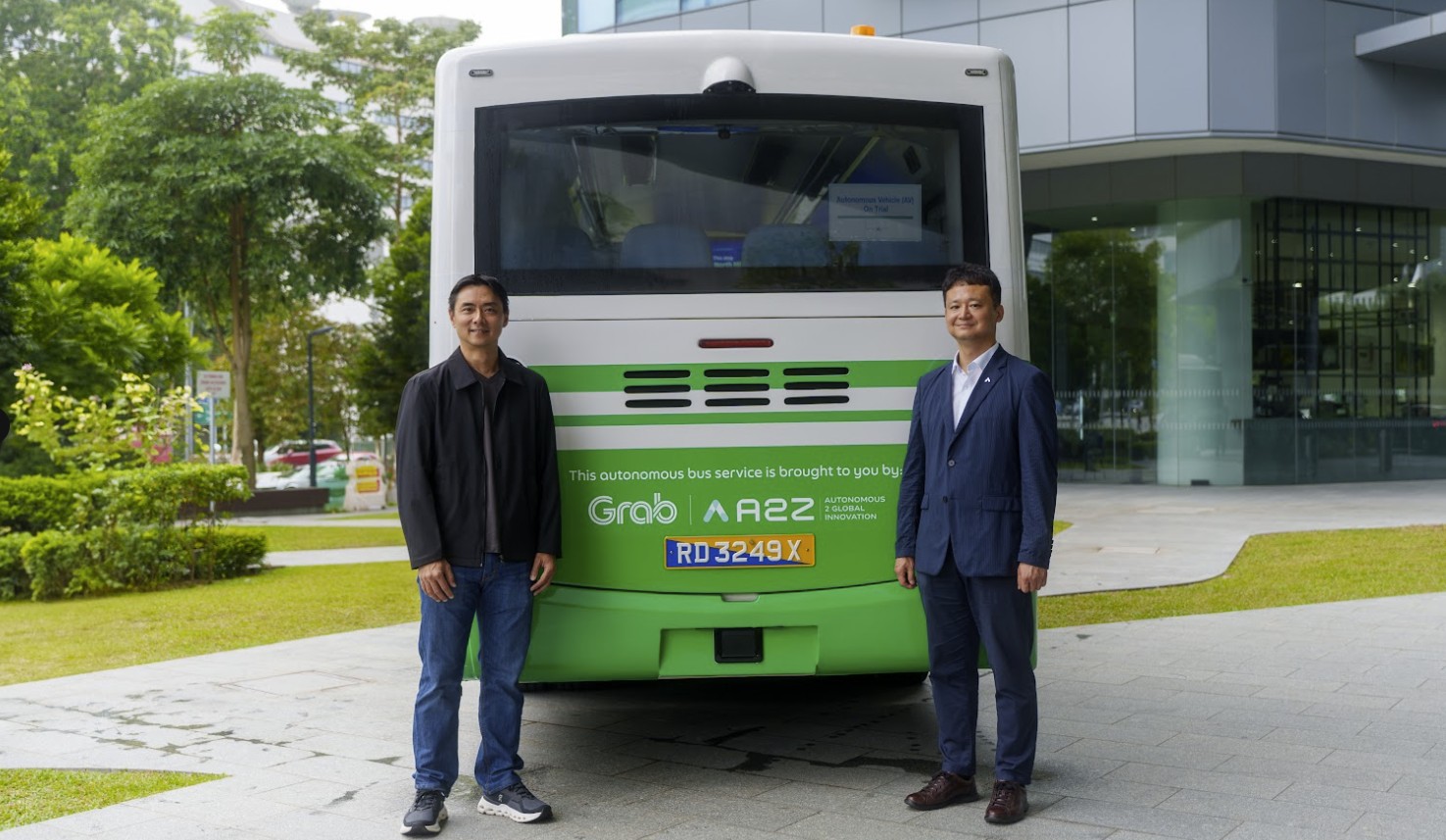Grab, Southeast Asia’s largest “super app” company, is partnering Autonomous A2Z (A2Z), a Korean autonomous vehicle technology provider, for a driverless electric shuttle bus pilot in Singapore.
Beginning this week, the pilot will serve Grab employees by connecting the company’s One-north headquarters to the nearby One-north Mass Rapid Transit (MRT) station, aiming to enhance first- and last-mile connectivity.
The electric shuttle bus is retrofitted with A2Z’s autonomous software and hardware and Grab’s Internet of Things (IoT) devices. The bus has 11 sensors, including LiDAR, radar and cameras that offer a 360-degree view of its surroundings, allowing it to detect and manoeuvre around objects and obstacles.
When the sensors or systems detect an obstacle, the in-built safety algorithm results in the bus coming to a complete stop. A trained safety driver will be present throughout each journey to ensure smooth operations and passenger safety. Grab plans to train up to 10 safety drivers by year-end.

The autonomous bus will operate for two hours during off-peak periods, alongside ongoing training sessions. Additional time slots may be introduced based on ride performance and safety outcomes.
Grab employees can use the Grab app to view the shuttle schedule, track vehicle location, and soon check seat availability in real time.
Onboard KartaDashcam devices will monitor passenger numbers and capture live images of the vehicle’s location. This information will be automatically synced with the app to keep employees informed with the most up-to-date details.
Yee Wee Tang, Grab’s regional head of operations, said the trial aims to evaluate the safety performance of autonomous technologies and explore the potential new job opportunities in this sector.
This pilot, announced on July 8, is A2Z’s first autonomous vehicle pilot in Singapore. So far, A2Z has clocked over 668,000km of safe autonomous journeys from 2020 to May 2025.
“The pilot will enable us to better assess the commercial viability of autonomous shuttles in addressing first- and last-mile commute challenges while exploring their potential to alleviate manpower shortages in the public transport sector,” said Ryan Kim, managing director for business and international at A2Z.
Grab’s autonomous shuttle has completed over 100 hours of training along a 3.9km fixed route between its one-north office and the MRT station. The process includes collecting and labelling road data, training algorithms to handle real-world scenarios like traffic lights and pedestrian crossings, and conducting on-route testing to optimise navigation and adapt to unexpected obstacles.
Earlier in March, Grab had inked a deal with Autonomous A2Z, as well as its driverless vehicle rivals Motional, WeRide and Zelos, to study the impact of autonomous vehicles in Southeast Asia.
Its latest pilot is part of a number of autonomous vehicle trials in Singapore. A separate one is set to begin in Punggol in the fourth quarter of this year, while China’s WeRide has been running a shuttle service at Resorts World Sentosa for the past year. It currently serves around 100 passengers daily along a 1.2km route.
Meanwhile, Singapore-based autonomous vehicle operator Moovita operates three driverless buses between Ngee Ann Polytechnic and nearby MRT stations. Each bus carries up to 16 seated passengers with service intervals of 30 to 45 minutes, depending on traffic.






